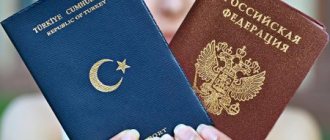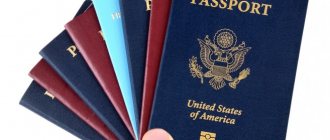Dual and second citizenship: what is the difference
It should be noted that there is a difference between dual citizenship and second citizenship. It is connected with those legal (and not only) consequences that arise in the presence of such a connection with the state.
Dual citizenship needs to be well understood
Dual citizenship means that countries give credit to each other for their citizens' obligations. This means you won't have to pay double tax, for example. This also largely involves the exchange of documents regarding a specific person. This approach makes it possible to alleviate a number of bureaucratic issues.
But you need to take into account that it is also not standard to count on receiving social benefits at double the rate. You will only be able to claim a pension in one country. The same applies to any other social payments. Mutual counting also applies to military service.
In general, a citizen retains rights and obligations in relation to both countries. But you need to take into account certain nuances.
In 2021, the dual citizenship regime is in effect between Russia and Tajikistan, in accordance with a special signed agreement. And for citizens of the Russian Federation this is the only option of this format. Previously, a similar agreement was in force regarding Turkmenistan. However, it lost its power in 2015.
As for second citizenship, it is possible in a number of countries:
- Israel;
- Italy;
- Austria;
- USA;
- Montenegro;
- Latvia;
- Germany, etc.
This is by no means a complete list. It is necessary to take into account that Russia does not limit its citizens from obtaining a second citizenship in any country in the world. Therefore, the above list can be expanded as much as desired, since it depends on the legislation of the second state. Some countries do not allow dual citizenship. That is, in order to become their citizens (or subjects, if we are talking about a monarchical system), you will need to officially renounce Russian citizenship.
But you need to take into account that such nuances are constantly changing. Therefore, it is best to find out information immediately before you decide to deal with citizenship issues. If you don’t want to lose contact with the Russian Federation for some reason, you can stop at obtaining a residence permit, for example. In some countries, a residence permit gives a person the same rights as citizenship, with the exception of voting rights.
There are a lot of nuances
If you have a second citizenship, you will have a double package of rights and responsibilities. There are no concessions: taxes will have to be paid according to the laws of each country, for example. However, this is the policy of the Russian Federation in the first place. Some countries take a different position and citizens of the Russian Federation who maintain a legal connection with their country may be given some concessions. But this already depends on the initiative of such a state; the specifics need to be found out in each individual case.
With second citizenship, they may be called up for military service twice if they are not deregistered in a timely manner. Moreover, it is necessary to keep in mind that, for example, in Israel women are also liable for military service.
As for taxes, in the Russian Federation the first thing that is taken into account is whether a person is a resident or not. If a person is outside the country for more than 183 calendar days a year, then he will pay tax on the income received at a rate of 30% instead of the standard 13%. That is, the question of citizenship in such a situation turns out to be far from the most important. And if you have a second citizenship, everything is decided precisely according to the specified principle, on a general basis.
Basic information
Second citizenship is the presence of a citizen of the Russian Federation of citizenship of a foreign state. If a Russian receives another citizenship, then the Russian one continues to be valid. He does not need to formalize his renunciation of Russian citizenship.
Dual citizenship is the presence of citizenship of two or more states (or citizenship if the country is ruled by a monarch).
The differences between these concepts are as follows.
- Dual citizenship presupposes an agreement between the countries whose citizenship the person received. For second citizenship, an international agreement is not required.
- With dual citizenship, taxes are paid only in one state - the one in whose territory the person lives permanently. With second citizenship, tax obligations arise in both countries. The same applies to military service and other obligations of a citizen.
- If you have dual citizenship, you do not need to notify the state of this fact. An exception is if an international agreement requires it. When obtaining a second citizenship, the state must be informed about this.
- With dual citizenship, the citizenship of children also becomes dual. In the second case, minors have only one citizenship – their choice.
Thus, dual citizenship gives a person the opportunity to enjoy the rights of both states. Obligations to pay taxes and perform military service are fulfilled in only one country. People receive protection and patronage from both countries and pass on dual citizenship to their children.
If you have any questions, you can contact us for free at the following phone numbers:
- Moscow: +7 (495) 128-82-35
- St. Petersburg: +7 (812) 507-80-73
- RF: +7 (800) 301-93-70
If you have any questions, you can consult for free by chatting with a lawyer at the bottom of the screen or by calling the following phone numbers:
- Moscow: +7 (495) 128-82-35
- St. Petersburg: +7 (812) 507-80-73
- RF: +7 (800) 301-93-70
If a person has a second citizenship, then in Russia he will be considered a Russian citizen, in China - Chinese. Second citizenship involves fulfilling obligations in both countries. If a person has completed military service in Russia, he will have to do it again in China.
What is multiple citizenship?
In the specialized literature you can find a number of terms relating to citizenship. In addition to dual, as well as the second, the concept of “multiple citizenship” is used. It combines all cases of legal ties between a person and a certain country.
The term “multiple citizenship” is used for general purposes. It may also include situations where a person has more than two citizenships (this is rare, but it also happens).
An important point: the presence of a particular person’s “citizenship” of an unrecognized country parallel to the citizenship of the Russian Federation does not actually give rise to multiple citizenship. In this case, for the country, the person remains with a legal connection exclusively with the Russian Federation, since the very fact of a second state is not recognized. A similar rating is issued at the international level.
What is dual citizenship?
Dual citizenship is a status in which an individual has passports from two states that have entered into international agreements on dual citizenship . Currently, the Russian Federation has a similar agreement on resolving issues of dual citizenship only with Tajikistan. Previously, there was a similar agreement with the Republic of Turkmenistan, but according to the official statement of the Russian Ministry of Foreign Affairs dated May 18, 2015, the agreement is no longer valid.
A Russian who has dual citizenship with Tajikistan has the right to choose, for example, in which of the two countries he will serve in the army upon conscription, and his children at birth automatically receive birth certificates from both countries confirming their dual citizenship.
Thus, if a Russian has citizenship of any other country except Tajikistan, it is impossible to talk about “dual citizenship”; in this case we are talking about “second citizenship”.
Who can have a second citizenship?
In general, according to the Constitution of the Russian Federation, every citizen has such a right. However, if a person represents Russia in one way or another, then it is not surprising that he should be associated exclusively with one country. This is necessary in order to avoid conflicts of interest. For the corresponding reason, the president of the country, as well as civil servants, cannot have a second citizenship.
In some cases, this issue is quite difficult to resolve. Much depends on what position the person concerned takes.
Let's sum it up
So, dual citizenship is a more profitable option, since a person bears tax, military and other obligations in only one country, and such citizenship is also passed on to children. However, this option is only available if there is an international agreement between the countries, and Russia has concluded this agreement only with Tajikistan and Turkmenistan.
Second citizenship comes with twice as many responsibilities. But you can apply for it in almost any country; the process of obtaining a passport is quick and simple.
What advantages does second citizenship provide?
Obtaining a second citizenship is a rather troublesome task that requires a deep dive into the laws of both countries. Also, often, as you might guess, you have to pay taxes in both places. However, most choose this option because of the benefits they receive:
- The ability to move around the world completely calmly. If you have two citizenships, all countries to which you can travel without a visa using at least one of your passports will automatically be open to you. This makes moving around the world much easier, faster and cheaper.
- You will receive certain privileges when applying for a job in a company that does business in two countries at once. For example, if you have citizenship of the Russian Federation and Israel, then the Russian-Israeli company will be especially glad to have such an employee. Moreover, the point is not even that it will be easy for you to cross the borders of these countries. It’s just that a person with two citizenships, firstly, with a high degree of probability, is fluent in the necessary languages, and secondly, is aware of the realities of both states.
- It will be more difficult not to let you go somewhere. Even during a pandemic, many countries were the last to close their borders to their own citizens.
- It is much easier to open a company that will subsequently go international. Second citizenship simplifies not only travel, but also interaction with foreigners.
- Your loved ones have the opportunity to choose citizenship or obtain citizenship of the country they are interested in. The specifics in this case greatly depend on the basis on which a particular state issues citizenship. But often the children of such a person, for example, can become citizens of a certain republic without any problems.
- Very often, a person with a second citizenship can safely choose in which country to receive medical care. Not all countries have highly developed medicine. It also often happens that if in some countries it is at a high level in the field of dentistry, for example, then in others it is at a high level with regard to the treatment of diseases of the nervous system. And from this position, having two passports from different countries will definitely be an advantage.
- Opportunities for more profitable employment are increasing. Most states act in relation to their citizens in the labor market in a protectionist manner. This means that they give the first opportunity to get a job to citizens of their country. And only if the own population does not apply for a vacancy, it can be offered to foreigners. Moreover, they often work under conditions of lower pay, with high tax rates. Foreigners also have a certain salary or career growth ceiling.
- Second citizenship allows you to live completely peacefully in the country for as long as you want. In this case, you will not need to obtain a residence permit or other permits. This significantly simplifies life, allows you to avoid paperwork and unnecessary expenses.
- The risk of being deported from the country for some violations disappears. A foreigner lives on the territory of the state largely in limbo. He can rent an apartment, find a job, start making connections. But a number of administrative violations and an unfortunate set of circumstances are enough for such a person to be deported and even banned from entry for a significant period. But nothing of the kind threatens the citizen.
- There is an opportunity to receive double social assistance. Second citizenship means that you will, in some cases, be supported by both countries. This applies to various payments, including pensions.
- The opportunity to get an education on preferential terms or to take part in mortgage programs with low interest rates. For example, a number of countries provide their citizens with the opportunity to acquire higher education for free. But foreigners will have to pay.
- The ability to choose which country to live in, taking into account the climate, social situation, etc. In the modern world, circumstances can change dramatically. It can be very difficult to predict something even a year in advance. Taking this into account, it is especially important to be able to quickly adapt to circumstances and change your country of residence if necessary.
Order a consultation
And please remember that Russia and Spain do not have an agreement on dual citizenship, as, for example, Spain has with the countries of Latin America, the Philippines, Andorra, Portugal, Equatorial Guinea...
This means that, in accordance with Spanish law, a Russian who wants to become a Spaniard must renounce Russian citizenship, lawyers point out. But in jurisprudence they always pay attention not only to the law, but also to established practice and the presence of precedents. And the precedents so far are such that “a Russian takes an oath of allegiance to the King of Spain before the relevant authorities of the Iberian kingdom and renounces Russian citizenship also presents to these authorities,” this is how Spanish legal scholars comment on Article 9 of the Spanish Civil Code, which reads: “A citizen of another state that does not have a relationship with Spain contract or agreement on dual citizenship, upon acquiring Spanish citizenship, must declare in writing the renunciation of his previous citizenship.” A Russian does not submit a petition to the State Duma to deprive him of Russian citizenship. And for his “old” homeland, he still remains its citizen.
The legal issue is that neither Russia nor Spain recognizes DUAL CITIZENSHIP in their relations with each other, but recognizes the presence of SECOND CITIZENSHIP or multiple citizenship. However, this non-recognition only means that the person’s second passport ceases to be valid in the territory of another state. Thus, another state will not have the legal right to stand up for its citizen in the territory of the country where he received his second passport.
The ways and means of obtaining Spanish citizenship are quite varied, and a separate article will be devoted to this issue, but here it makes sense to provide information that may make someone think about whether it is worthwhile to obtain a passport of another state at all. Life is arranged in such a way that everything in it is balanced, and there are no rules without exceptions, and positive achievements without negative nuances.
According to the norms of Russian legislation, a person can lose Russian citizenship only on the basis of his own refusal. Spanish law provides for the possibility of forced “erasure from the number of Spaniards”. Based on considerations of “national security, public interest, or public policy considerations.” Moreover, these criteria are not spelled out within clear boundaries and do not have a legally unambiguous definition, which means that the statement “the law is what the drawbar is, where it turns, that’s where it comes out” is quite applicable here. And in order not to at least remain stateless at one absolutely unfortunate moment, do not give up what you have.
Having received a second citizenship (as well as a residence permit), notify the Federal Migration Service about this in accordance with the Federal Law of the Russian Federation of June 4, 2014 No. 142-FZ “On Amendments to Articles 6 and 30 of the Federal Law “On Citizenship of the Russian Federation” "and certain legislative acts of the Russian Federation."
Those persons who have a second passport (passport of another state), but are currently in Russia, must notify the FMS within 60 days from the date the above document enters into legal force. Those who, in accordance with their existing residence permit or second citizenship, are in Spain, must notify the FMS upon arrival in Russia. You don't have to drop everything and go to get a mark. After crossing the Russian border, you still have the same 60 days to notify. Administrative or criminal cases can be initiated only against those who did not find time to notify the FMS on their first visit.
VD
What are the disadvantages of second citizenship?
Many people perceive second citizenship solely as a benefit. However, it is worth noting that it also has its disadvantages, and often significant ones:
- It will be necessary to perform military service in two countries. Sometimes this can be avoided, but not always.
- Double tax burden is a reality for dual citizens. Sometimes even the fact that you earn income in a country other than your host country does not save you from having to pay taxes to it. Moreover, the amount of such contributions to the treasury is often quite high. A striking example is the United States, which requires its citizens to pay into the budget, even if they do not, in principle, live in the States and do not receive income from activities there. Many US citizens even renounced their citizenship because of this. To be fair, it should be noted that in some countries you will not have problems with double taxation.
- It is necessary to take into account your obligations to the two countries. For example, in a public virtual space you need to behave in such a way as not to violate the laws of any state. Otherwise, where you are will no longer be particularly important. After all, you still have jurisdiction.
- You will have to go through a rather complicated bureaucratic procedure for obtaining a second citizenship. Changing citizenship is quite difficult in principle. However, everything becomes much more difficult if you still want to retain the citizenship of your previous country. Many government agencies in other countries at this stage may begin to suspect that you are not planning to integrate into your new society. You have to be patient and prove the opposite.
- You need to take care to notify the Main Directorate of the Ministry of Internal Affairs of the Russian Federation that you have a second citizenship. Please note that if you do not do this on time, you will face a fine of 500 to 1000 rubles. And if you basically ignore such an obligation on your part, then we will be talking about criminal liability.
Second citizenship status in different countries
Russia
Article 6 of the Federal Law “On Citizenship of the Russian Federation” states:
Briefly: having a second passport is not prohibited, but it is mandatory to notify about its presence. For this purpose, 2 months are allotted from the date of receipt.
It also follows from the law that, having a dual status, on the territory of Russia a person will be considered a citizen of the Russian Federation, and, for example, in Cyprus, he will be a resident of Cyprus. On the territory of a third country, during customs clearance, he has the right to independently choose which country’s passport to present.
Ukraine
Ukrainian legislation provides for only one citizenship. Thus, Article 4 of the Ukrainian Constitution reads:
As you can see, there is no direct ban on another residence in Ukraine. Possible restrictions relate only to non-recognition of dual status in its legal understanding, while second citizenship is allowed without regulation by law.
In addition, the Law of Ukraine “On Citizenship” states:
Based on this, if a person is a resident of Ukraine and Cyprus, on the territory of Ukraine he is a subject only of this country, and the same will happen in Cyprus: while there, he will be a citizen of only this state.
The situation will be different if a person is on the territory of a country of which he is not a citizen: here he can present any of the passports at his discretion.
Belarus
Article 11 of the Law of Belarus “On Citizenship” states the following:
This information makes it clear that a citizen of Belarus does not have the right to dual citizenship, but has the right to have a second passport. Belarusian legislation does not require the mandatory presentation of a second passport.
Which countries allow second citizenship?
Most states do not officially allow such status, but there are those in which the procedure is enshrined in the Constitution, such as Greece, the Dominican Republic, Israel and others. Russia is one of these countries.
For residents of the Russian Federation and Tajikistan, there is a bilateral agreement on dual citizenship; additional status is not prohibited, but another passport must be notified to the Main Directorate of the Ministry of Internal Affairs.
Special cases allowing for second citizenship status
In a number of countries, you can issue another passport, but only if certain conditions are met:
- Germany – legislation provides for the issuance of citizenship to the children of migrants, while it is possible to retain the status of their parents
- Argentina – additionally allowed to have Spanish or Italian documents
- Spain – only some countries allow for a second passport
- Latvia – the right to two citizenships is given to those who moved to the country from 1940 to 1990, this rule applies to subsequent generations
- Lithuania – it is possible to have two passports only for those persons who have regained citizenship lost before the age of 18
- Chile – you can only have a Spanish passport
- USA - when taking the oath, there is verbal confirmation of the renunciation of previous citizenship, but there is no need to provide written confirmation
What else should you consider?
In Russia, having a second citizenship does not require anything special from a citizen, with the exception of the already mentioned obligation to report this to the relevant authorities. However, in other states, additional requirements may be imposed on those wishing to obtain citizenship of the country while maintaining a legal connection with the previous country.
Don’t forget to notify the Main Directorate of the Ministry of Internal Affairs of the Russian Federation about your second citizenship
Sometimes the period of stay after which applications can be submitted is extended. Periodically you need to pass exams on your knowledge of history or somehow confirm your desire to integrate.
Having a second citizenship opens up a lot of opportunities. But we shouldn’t forget about the other side of the coin.










